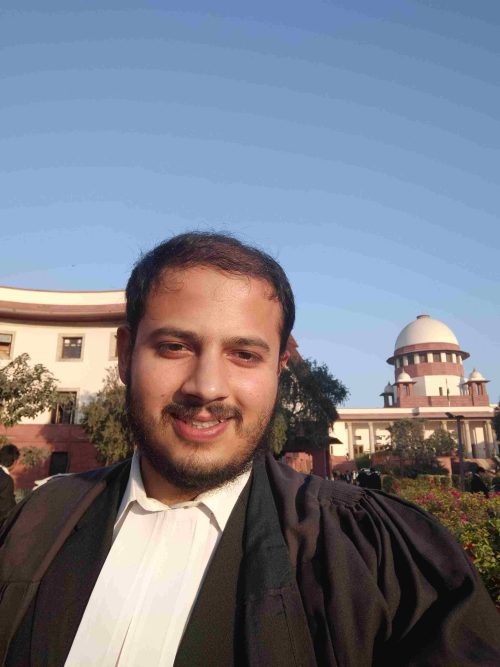How 2 Uttarakhand Lawyers Are Using the Courts to Defend Forests, Wildlife, & Rivers
Ekta Sati currently works with the Ministry of Environment, blending legal acumen with heartfelt advocacy for the planet. With over three years of experience, a Master’s in Environmental Law from Jindal, and work with WWF-India and Sankalptaru, she brings policy to life. Passionate about storytelling, she writes on climate and the changemakers shaping a greener tomorrow.
While protests, clean-up drives, and public awareness campaigns continue to shape Dehradun’s growing environmental movement, another, quieter battle is being waged in the courtrooms. As forests shrink and fragile landscapes face mounting threats, Uttarakhand’s legal spaces are becoming powerful grounds for defending the region’s green heritage.
In recent years, lawyers, citizen groups, and even individual petitioners have stepped up to challenge policies that put the state’s rivers, forests, and wildlife corridors at risk. They are filing Public Interest Litigations (PILs), pushing for accountability, and using the law as a shield to protect what remains.
What’s remarkable is that many of these legal victories are not being led by large organisations, but by ordinary people who refused to stay silent—lawyers, students, long-time residents, and first-time activists. Their persistence is proving that environmental justice doesn’t always begin on the streets; sometimes, it begins with a single petition, quietly filed by someone who believes their city and its forests deserve better.
This story follows the lawyers, citizens, and unsung heroes who are using the courts to fight for Uttarakhand’s ecological future—and winning.
Advocate Abhijay Negi on environmental justice in Uttarakhand
Advocate Abhijay Negi is one of Uttarakhand’s most respected environmental defenders and a leading voice in the state’s civic and legal battles for ecological protection. For over 15 years, he has been at the forefront of these efforts, relentlessly challenging policies that threaten the region’s delicate ecosystems. As the founder of the NGO Making a Difference by Being the Difference (MAD), Mr. Negi has been instrumental in rallying public support and driving landmark Public Interest Litigations (PILs) in the Hon’ble High Court of Uttarakhand, Nainital.
 Advocate Abhijay Negi’s legal fight helped protect the Shivalik Elephant Reserve from airport expansion and habitat loss.
Advocate Abhijay Negi’s legal fight helped protect the Shivalik Elephant Reserve from airport expansion and habitat loss.
Two forces driving environmental litigation
When asked about the evolving landscape of environmental litigation in the state, Mr. Negi offered a powerful distinction:
“There are broadly two kinds of environmental litigation seen in the Uttarakhand High Court. First, NGOs, foundations, and civil society organisations approach the court as a collective force. Second, where individuals, driven by personal conviction and persistence, seek relief independently, often undeterred by pressure from the government or bureaucratic machinery. It is heartening to see Uttarakhand residents active in both spheres.”
Mr. Negi affectionately describes these individuals as “lone warriors,” citizens who have boldly taken a stand against ecologically harmful decisions. He cited the determined efforts of activists like Mr. P.C. Tiwari, Ms. Reenu Paul, Mr. Ashish Garg, Ms. Urmila Thapa, and Mr. Abhinav Thapar—ordinary people who have led extraordinary fights to protect the environment.
A landmark victory: saving the Shivalik Elephant Reserve
One of Mr. Negi’s most significant legal battles was his representation of Ms. Reenu Paul in PIL No. 5 of 2021, which contested the de-notification of the Shivalik Elephant Reserve. This reserve, established in 2002 with central government approval, is a critical part of India’s Project Elephant network.
The State Wildlife Board’s 2020 recommendation to de-notify the reserve aimed to enable the expansion of Dehradun’s Jolly Grant Airport. In response to the PIL, the Uttarakhand High Court stayed this recommendation on 8 January 2021. However, in a swift and controversial move, the government issued a de-notification the very same day. Acting quickly, Mr. Negi filed for interim relief, and the court granted a stay on the government’s notification on 11 January 2021.
This decisive legal intervention is now seen as a milestone in Uttarakhand’s environmental jurisprudence. It effectively protected the Shivalik Elephant Reserve from being diverted for non-forest use, safeguarding one of India’s most vital wildlife corridors.
The Shivalik Elephant Reserve, which overlaps with Rajaji National Park and the Shivalik range, is a haven for Asian elephants, Bengal tigers, sloth bears, gorals, jackals, and over 500 bird species, including the Great Pied Hornbill and the fire-tailed sunbird. The court’s order has helped preserve elephant migration routes, ensured genetic diversity, and prevented further habitat fragmentation by halting unsustainable development in this ecologically sensitive zone.
Citizen Action as a Catalyst for Change
Mr. Negi emphasised that this case serves as a powerful testament to the role of citizen-led action and judicial oversight in protecting India’s natural heritage for future generations.
He also highlighted another case where he represented Citizens for Green Doon (CFGD) in the Purukul-Kimari road connectivity project. In a rare, progressive judgment, the court directed a joint environmental survey and ensured CFGD’s participation in assessing whether the proposed development met sustainability benchmarks.
The Rise of Individual Petitioners
Reflecting on recent trends, Mr. Negi observed:
“There’s a growing tendency for the High Court to favour PILs filed by individuals over those filed by organisations. This may be due to questions of sustained responsibility or follow-through within some organisations.”
His insights illuminate how both individual and collective efforts remain essential in the fight for environmental justice. In Uttarakhand, where fragile ecosystems are constantly threatened, such vigilance is crucial to keeping unsustainable development in check.
Advocate Snigdha Tewari on Joshimath’s fight for survival
Advocate Snigdha Tewari, a practicing advocate at the Uttarakhand High Court in Nainital, has been a steadfast voice in the realms of human rights, climate justice, and the unfolding land subsidence crisis in Joshimath. Her work is shaping the legal landscape in one of India’s most ecologically vulnerable regions.
 Snigdha Tewari represented a landmark PIL that led to a construction ban in Joshimath after rising land subsidence threats.
Snigdha Tewari represented a landmark PIL that led to a construction ban in Joshimath after rising land subsidence threats.
In our conversation, she delved into the critical case of P.C. Tewari v. State of Uttarakhand (WPPIL No. 67 of 2021). The petitioner, Mr. P.C. Tewari, is not just an environmentalist but also a veteran of the historic Chipko Movement, symbolising decades of grassroots ecological resistance.
Challenging the tipping point: The Joshimath Case
When asked how Public Interest Litigations (PILs) are impacting communities in Uttarakhand, Mrs. Tewari provided essential context:
“The PIL arose out of the alarming frequency of land subsidence and landslides in the para-glacial region of Joshimath, an area falling within a high-risk seismic zone. We sought directions from the court to halt construction activities at hydroelectric project sites until robust early warning systems are put in place.”
The court’s swift response marked a turning point.
“The Hon’ble High Court, through its order dated 12.01.2023, strictly enforced a ban on construction in the Joshimath area, providing immediate relief to the residents,” she explained.
Yet, this relief remains precarious.
“While we are currently protected by the interim stay granted by the court, there is always the looming threat of yet another large-scale project, like those undertaken by NTPC, casting a shadow over the fragile lives and ecology of Joshimath.”
A Growing wave of collective accountability
Mrs. Tewari underscored that cases like these not only offer immediate protection but help shift the government’s accountability and environmental priorities. Thanks to the persistent efforts of organisations, individuals, and activists, the judiciary is increasingly steering policy toward sustainability.
She also emphasised the intergenerational power of activism:
“The collective activism of youth and senior citizens alike is driving the changes needed to combat rising temperatures and climate change.”
Whether in courtrooms or community forums, these collective efforts are forging a path where environmental justice is no longer an afterthought but a shared responsibility.
We’re All Part of This: Reflections on Nature and Civic Action
It’s easy to forget sometimes, but we’re not separate from nature—we’re part of it. Every tree, every river, every bird we see is connected to our lives in ways we don’t always notice. The environmental challenges we’re facing in Uttarakhand aren’t just distant news stories or complex policies. They’re right here, shaping the air we breathe, the water we drink, and the spaces where our children play.
What gives hope is this: the fight for a greener, healthier Doon isn’t just in the hands of experts anymore. It’s in the hands of students, lawyers, artists, and even retired citizens—people who are stepping up because they care.
Every week, they’re out there:
- Organising peaceful protests
- Filing petitions that make a real difference
- Launching awareness drives
- Coming together to reclaim public spaces—sometimes just by gathering on Sundays to remind each other that their voices matter.
It’s beautiful to see how these small, steady efforts are changing the conversation and nudging powerful systems to pay attention.
Change takes time, but it’s happening
Of course, change isn’t always fast. It takes time. But it’s happening—step by step, voice by voice. The people of Uttarakhand are showing that sustainable development isn’t just a demand—it’s a community movement, growing from the ground up.
And that’s the most powerful reminder of all: when ordinary people come together, they can protect the places they love—for themselves, for their children, and for generations to come.
Edited by Leila Badyari

In this column, TBI editorial brings you articles from experts across India, tackling the challenges that matter most. These insightful pieces offer practical solutions and inspire us to take proactive steps in addressing the issues we face in our communities and beyond.
News